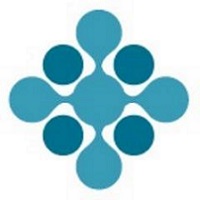 For the first time, CommonWell Health Alliance® (@CommonWell) hosted a connectathon with 11 of its Service Adopters to test its Fast Healthcare Interoperability Resources (FHIR) services as it works to build the next generation of FHIR for clinical data exchange. While CommonWell has been using FHIR for document-based exchange for some time, it’s now preparing to bring fully scaled discrete FHIR resource exchange to the network in the future.
For the first time, CommonWell Health Alliance® (@CommonWell) hosted a connectathon with 11 of its Service Adopters to test its Fast Healthcare Interoperability Resources (FHIR) services as it works to build the next generation of FHIR for clinical data exchange. While CommonWell has been using FHIR for document-based exchange for some time, it’s now preparing to bring fully scaled discrete FHIR resource exchange to the network in the future.
The combination of FHIR with the CommonWell Record Locator Service (RLS) will give providers the ability to locate FHIR resources for a given patient and query specific smaller pieces of patient data such as labs, medications and allergies—in addition to documents. This facilitated exchange model strives to bring a practical FHIR-at-scale model to the industry and is expected to be a strong candidate for phase one of the TEFCA FHIR Roadmap in development by The Office of the National Coordinator for Health Information Technology (ONC) in cooperation with the health IT community.
The two-day virtual connectathon included three tracks.
Track 1: FHIR R4 Document Contribution
This track tested the new FHIR R4 Document Contribution solution, which allows CommonWell Service Adopters the ability to respond to document queries using a R4 endpoint. Service Adopters can initiate document queries today using either XCA or FHIR, and now we’ve updated our ability to allow our connected members to respond in FHIR R4. Working to adhere to the latest standards is a key enabler for current and new members to connect and share data at scale. Participants testing in this track included athenahealth, Cancer Insights, Cerner, MEDHOST, MEDITECH, Oprable, Seqster, and WellSky.
Track 2: FHIR Discrete Resource Exchange
The second testing track expanded upon the work demonstrated as a pilot effort at the HIMSS22 Interoperability Showcase™ and leveraged CommonWell as the FHIR Directory, inclusive of the Master Patient Index (MPI) and RLS. This track also allowed FHIR clients and servers to use CommonWell community certificates issued by EMR Direct—an accredited Certificate and Registration Authority—to register, authenticate and get authorization to FHIR servers. EMR Direct participated as subject matter experts to guide CommonWell members through building and testing dynamic client registration and authorization using the UDAP Security Implementation Guide. The use of the UDAP Security IG allowed participants to streamline the registration and authorization process and remove manual interaction between FHIR clients and servers. Participants included Health Gorilla, MEDHOST, MEDITECH, Oprable, Patientory, and Seqster.
Track 3: FHIR Practitioner Directory
In support of the Payment and Health Care Operations use case, participants in this track tested populating the Practitioner Directory using a bundle of Practitioner and Practitioner Role resources. This allows the practitioner data, including provider (type 1) NPI, that is populated into the Practitioner Directory to be used by Data Retrieval Vendors and/or Payers to search against to target organizations for subsequent queries for clinical documents. Participants included Inovalon and MEDITECH.
“The Alliance is working together to build the next generation of FHIR usage,” said Paul Wilder, executive director of CommonWell Health Alliance. “We want to show that modern, off-the-shelf components, with our record locator as jet fuel, pieced together in a simple yet elegant way, create a massively scalable solution to meet the next phase of interoperability for the health care industry.”
The Alliance has been using FHIR since 2014. CommonWell was the first network in production with the HL7 FHIR v.0.08 specification for patient identity management. In 2017, CommonWell became the first network to put APIs into production that conform to the DSTU2 version. Currently, 19 Service Adopters are using or are in the process of implementing FHIR Document Exchange.
“FHIR has many important uses in health care data exchange, but what we’re most excited about is to enter the new frontier of using FHIR for discrete data exchange in a secure and scalable way,” said Liz Buckle, director of product of CommonWell Health Alliance. “We believe the CommonWell RLS is the key to unleashing the true potential of FHIR for discrete data exchange—because it has the power to offer our members the ability to easily find patients and their care locations in a way that they have come to expect. This new functionality has the capability to significantly improve provider workflows and the breadth of data that can be exchanged—leading to more informed care and better patient outcomes.”
Today, the CommonWell network enables the federated exchange of patient information across more than 27,000 provider sites representing 166 million individuals on its nationwide network alone. Combined with its CommonWell Connector™ and collaboration connections like the Carequality Framework, connected provider sites can exchange data with more than 50,000 clinics, hospitals, specialty centers and more. To date, more than 2.3 billion health documents have been exchanged across the CommonWell network.
About CommonWell Health Alliance
CommonWell Health Alliance is a not-for-profit trade association of health care and technology organizations working together to create universal access to health data nationwide. CommonWell members represent more than 20 care settings, including market leaders and technology innovators in acute, ambulatory and post-acute care, patient portals, imaging, population health, emergency services, data locator services and more. CommonWell and its members are committed to the belief that provider access to health data must be built into information technologies at a reasonable cost for use by a broad range of health care providers and the populations and people they serve.
